In the Menghai family, I think of 7542 as the loud-mouthed older brother, the 8582 as the elegant middle sister, and the 0622 as the fat, solid toddler with an unexpectedly deep voice.
Pushing the simile further, the 7532 is the sharp, yet pleasant, elder sister.
Pushing the simile further, the 7532 is the sharp, yet pleasant, elder sister.
This didn't cost much, relatively speaking, weighing in at £8.20 - even though the Chinese price is but a fraction of that (painfully enough!). The leaves are tiny, as in the way that many old-fashioned teas seem to be. Perhaps this goes back to the lucha assumption that tiny leaves = good, which doesn't necessarily hold for pu'er - I like fat, chunky leaves to impart a fat, chunky flavour.
As one would expect from Menghai, the leaves are pungently, brutally, green. It's a bit of a knock-out. At the low, low Menghai price, it's certain that they're plantation leaves - but they're aggressive!
As one would expect from Menghai, the leaves are pungently, brutally, green. It's a bit of a knock-out. At the low, low Menghai price, it's certain that they're plantation leaves - but they're aggressive!
Pu'er soup doesn't come any yellower than this - highly uncompromising. While the beidixiang [initial scent] is quiet, the lengxiang [later scent] is all strong, low sugars. This contains a lot of oomph.
Oomph indeed, vibrating on the lips and tongue with all that aggressiveness of decent tea. The flavour comprises that chunky sugar from the aroma combined with an undercurrent of very pleasant Menghai mushroom. It is a sharp, citrus affair.
Oomphiness is evidenced yet further in the huigan, which builds like a wave and crashes into the back of the throat. Hence, the aggressive, sharp elder sister.
However, she does have some delicacy and feminine charm - the tiny leaves impart a silky, tippy texture to the soup.
As infusions draw on, she turns out to be rather sweet and enjoyable - despite packing a near-fatal punch in the fourth infusion. A bit of spirit isn't a bad thing! Half-Dipper: come for the tea, stay for the political incorrectness.
I was going to write that she was "inexpensive and freely available" but that doesn't sound much of a compliment to a woman, so I'll leave it unsaid.
Oomphiness is evidenced yet further in the huigan, which builds like a wave and crashes into the back of the throat. Hence, the aggressive, sharp elder sister.
However, she does have some delicacy and feminine charm - the tiny leaves impart a silky, tippy texture to the soup.
As infusions draw on, she turns out to be rather sweet and enjoyable - despite packing a near-fatal punch in the fourth infusion. A bit of spirit isn't a bad thing! Half-Dipper: come for the tea, stay for the political incorrectness.
I was going to write that she was "inexpensive and freely available" but that doesn't sound much of a compliment to a woman, so I'll leave it unsaid.
Addendum
October, 2013
While I bought more of the 7542 in 2008, I like to hedge my bets. With the low cost of the cakes in this year (approx. $10), it's not an expensive risk.
As with many of the cakes that I buy for storage, it is good to get an opportunity to revisit them. As may be seen from this cake, it is untried since Yunnan Sourcing sent it to me, five years ago.
Five years on, the cake is already darkening well. The humid atmosphere in Oxford is, at least, good for bringing on the colour and related aspects of the tea. The low temperatures mean that other changes are more gradual, but I don't have a feeling that I should be hurrying.
Its soup, not shown here, has changed to a husky orange. I enjoy its somewhat fruity and sweet scent, with its heavy Menghai base of traditional tobacco. Naturally, it has kuwei [good bitterness] aplenty, but it is not the brassy kuwei of youth: it is dark, low, and pleasantly sweet.
It is lower, more rounded, and less sharp-around-the-edges than I remember, which is surely a good thing. I suspect (and hope) that I will prefer this tea in its state after a further five years of aging, however.

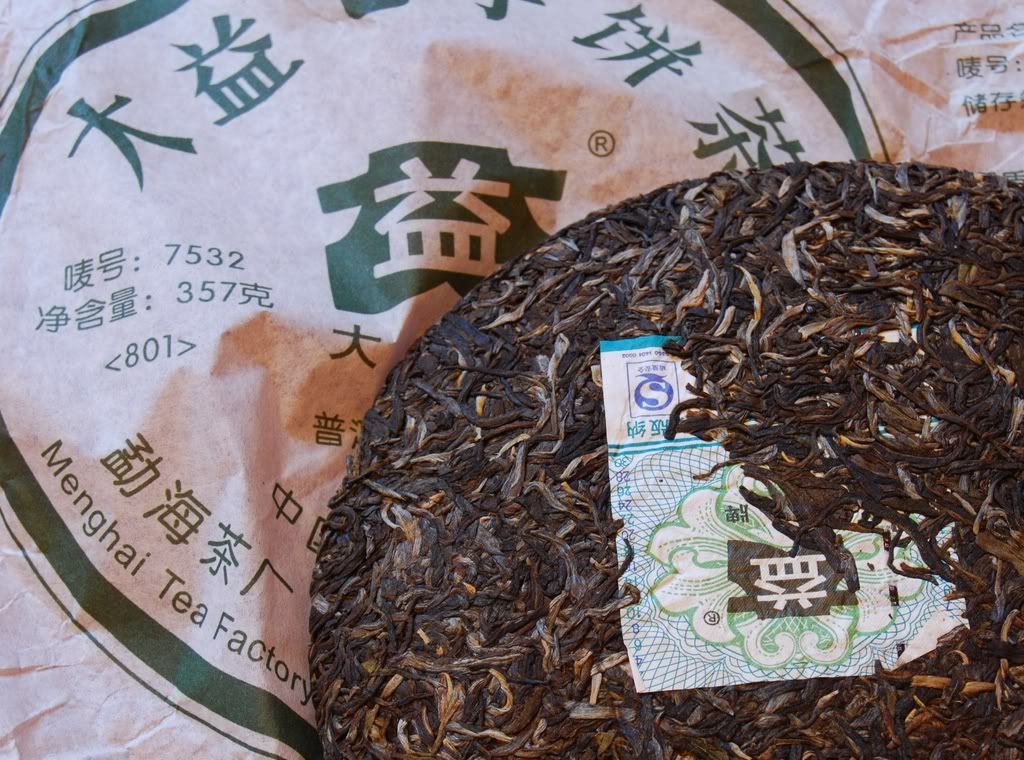
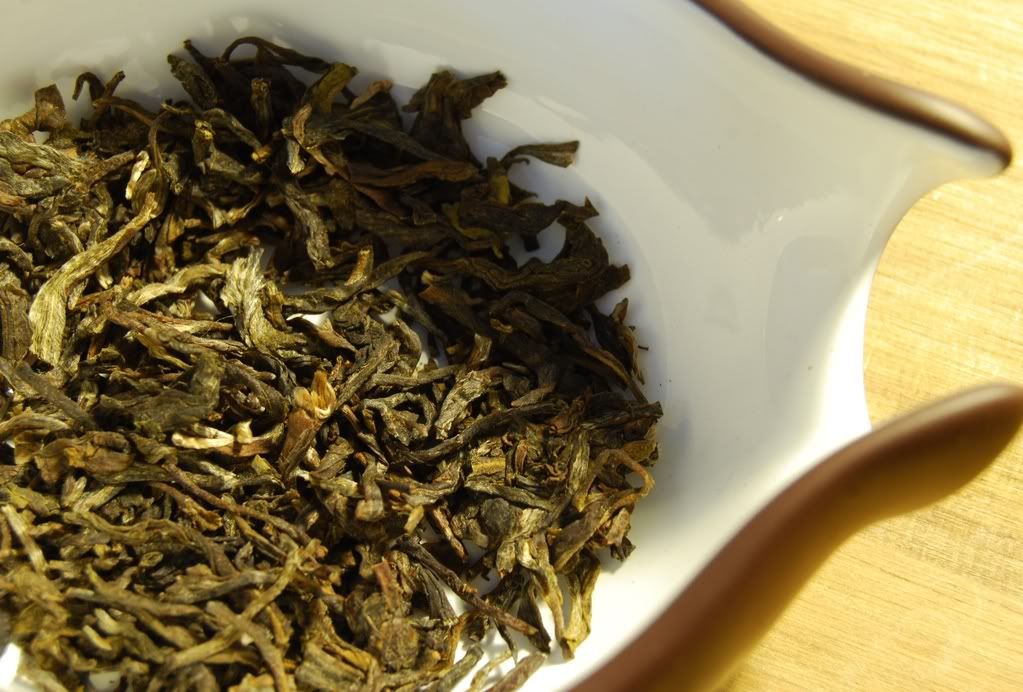
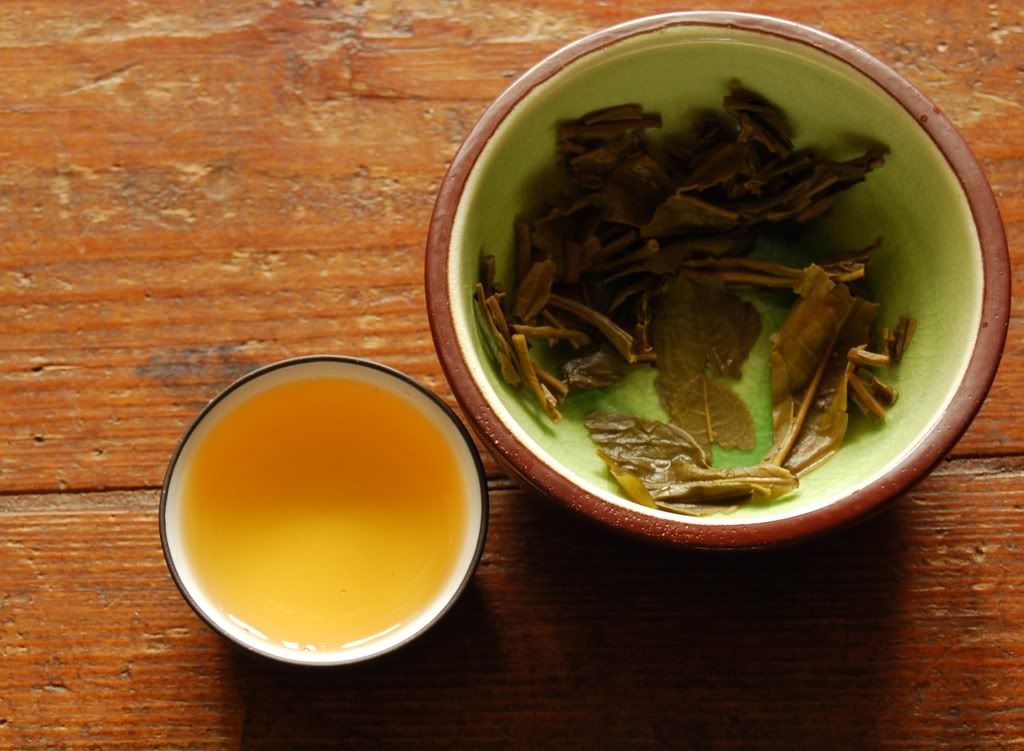
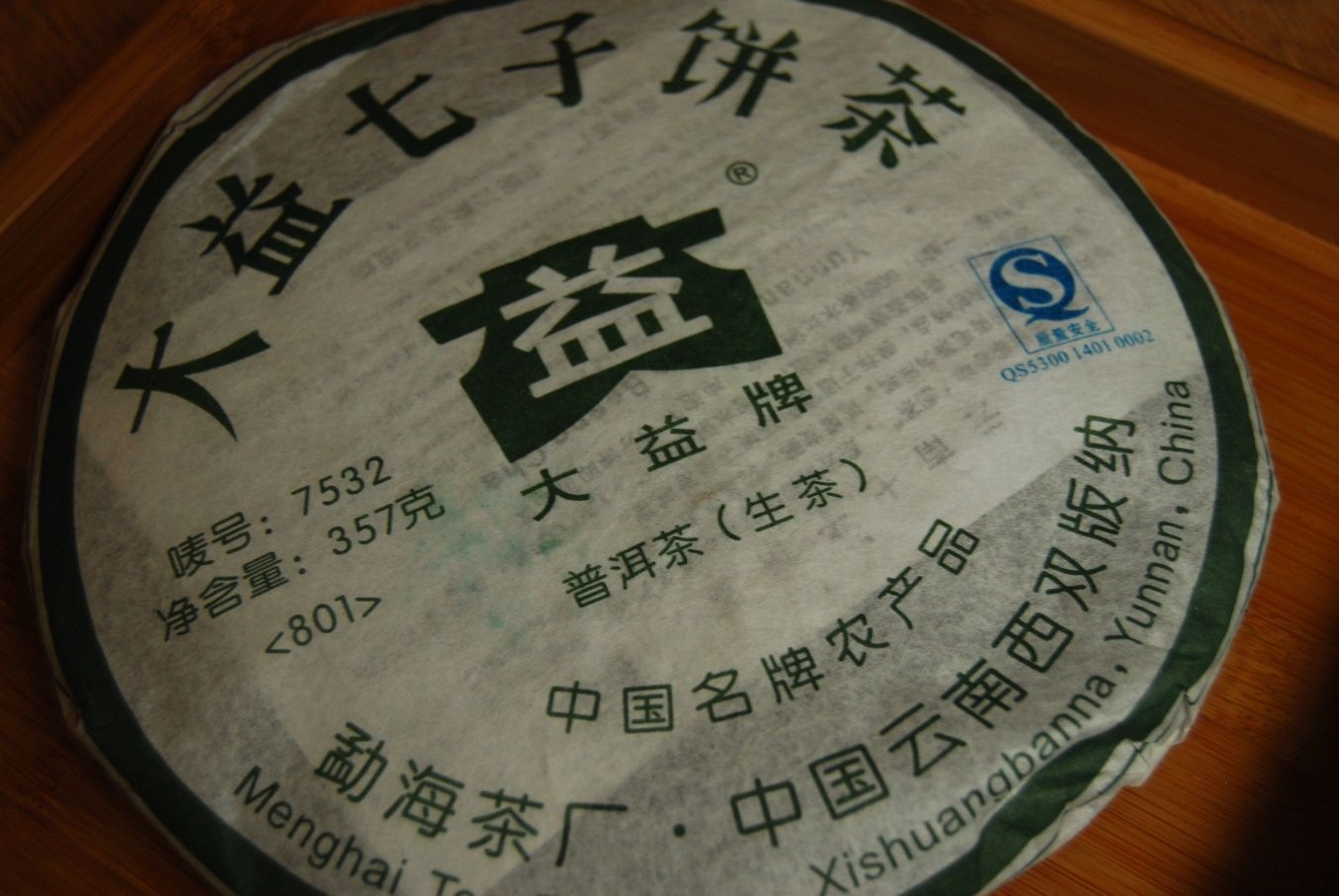
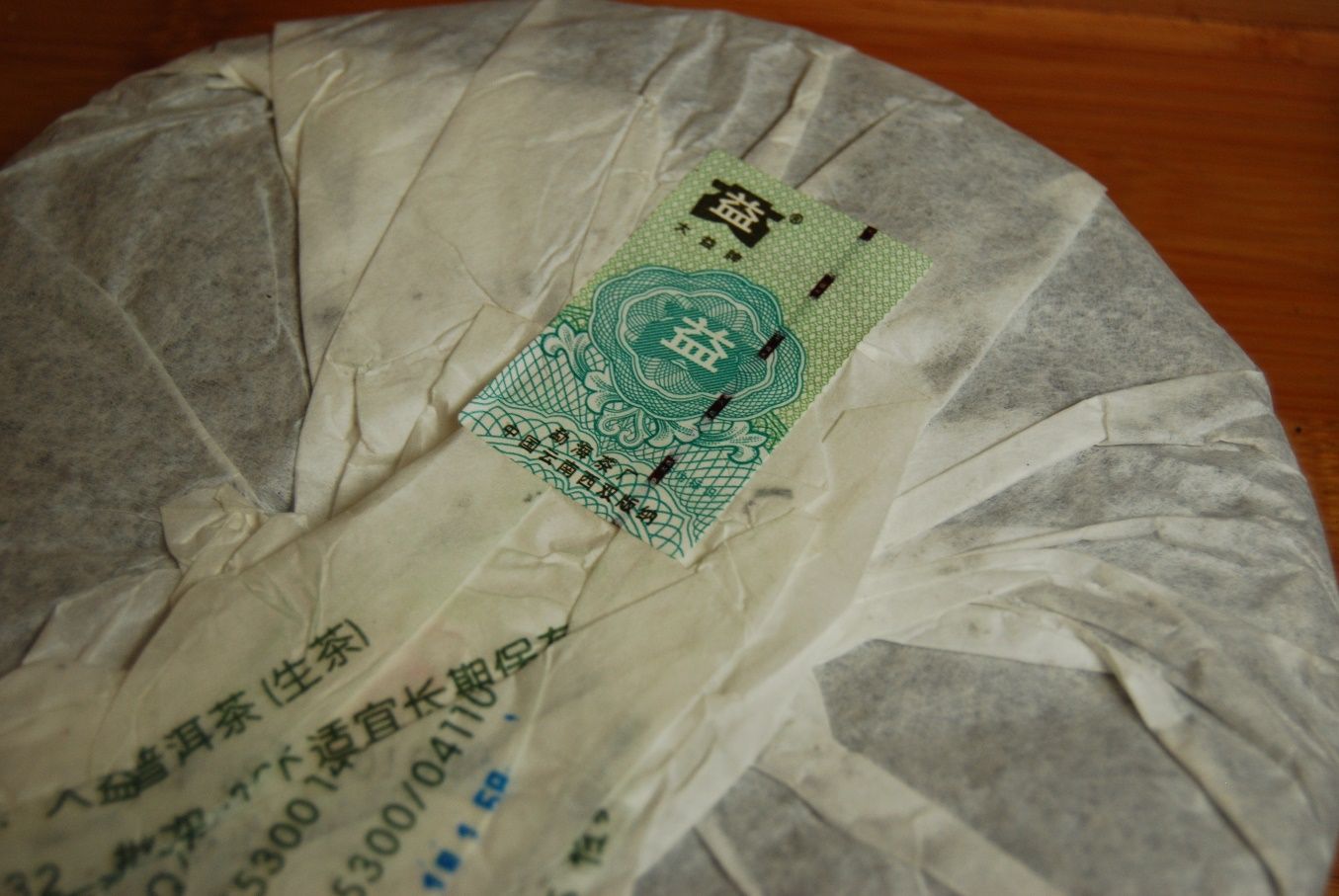
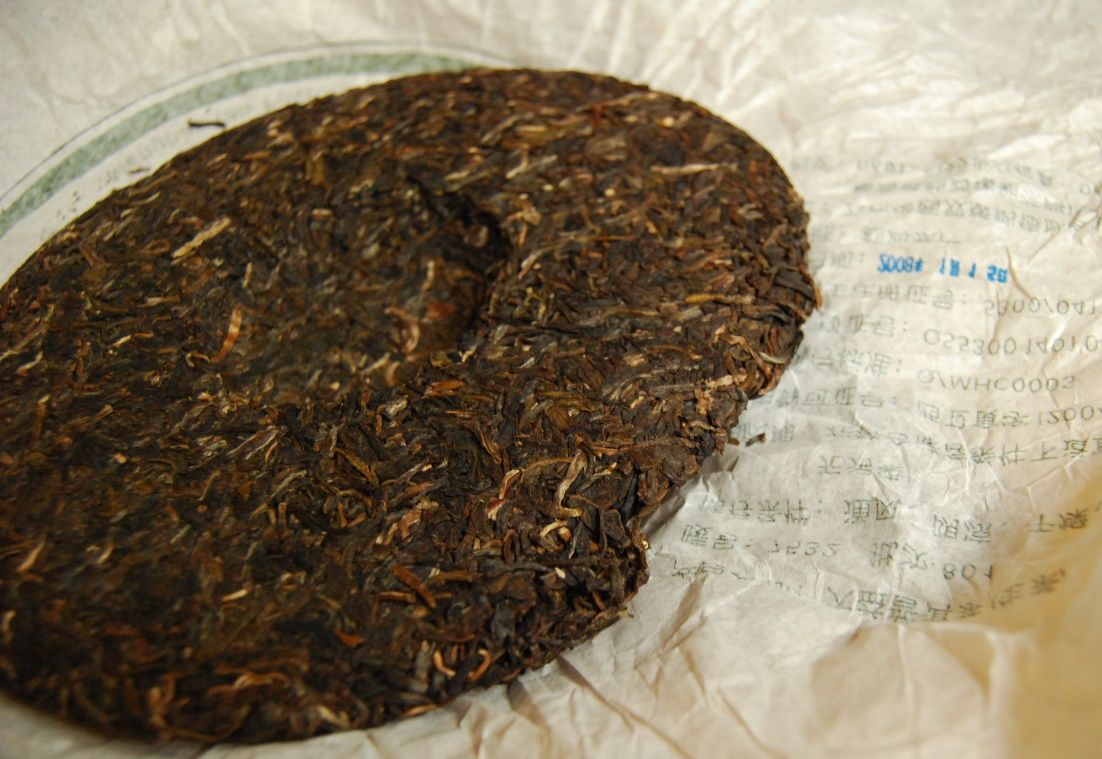
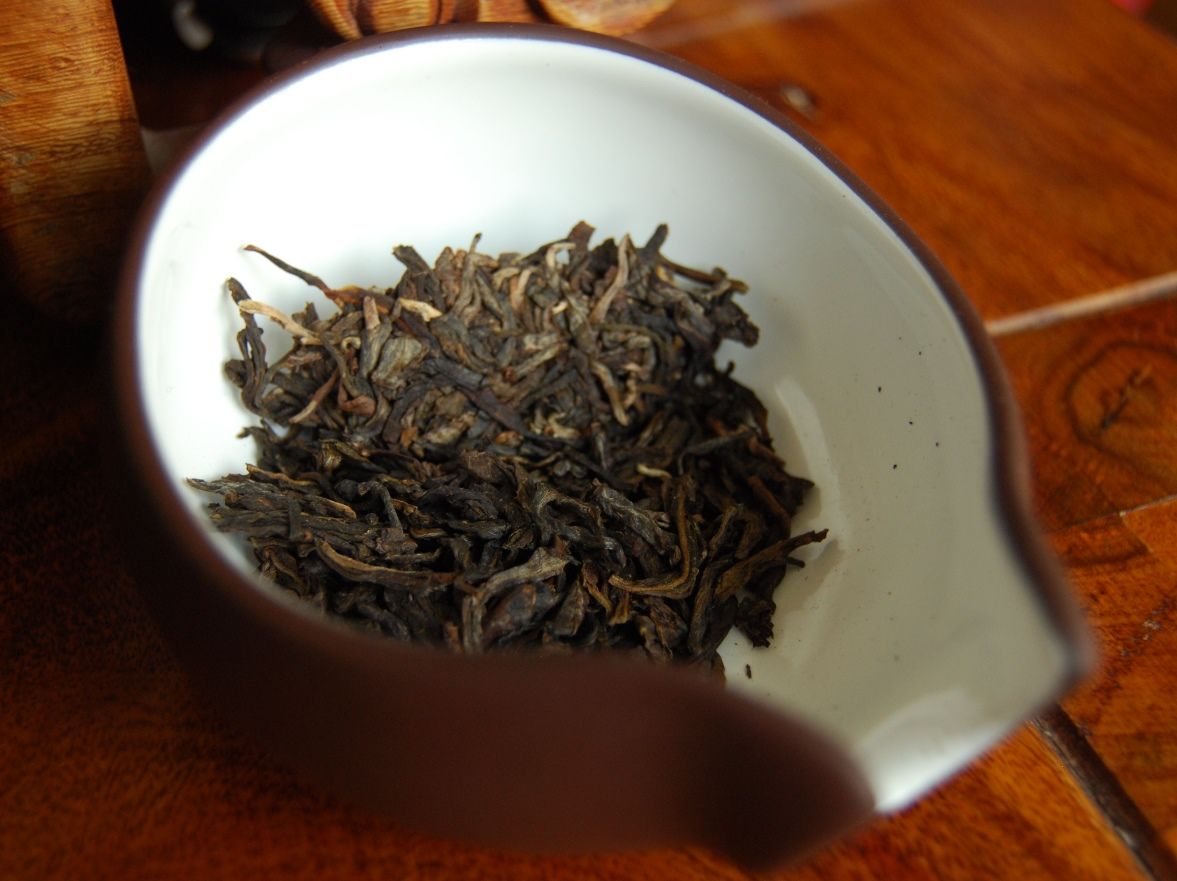
What an excellent review on this tea. I liked your description of this tea in comparsion of the other Menghai siblings.
ReplyDeleteThanks always for the reviews.
Thank you, Your Wooginess.
ReplyDeleteToodlepip,
Hobbes
Great review, as always.
ReplyDeleteIf this is politically incorrect, they're going to have to come up with a new term for my body of work.
and who is the pretty lady in your avatar picture, pray tell?
ReplyDeleteAh, the lovely and talented Mrs. Shlongini, whose tea palate requires a bit of, shall we say, work.
ReplyDeleteI trust her real name is more in keeping with her prettiness than "Schlongini" :)
ReplyDelete